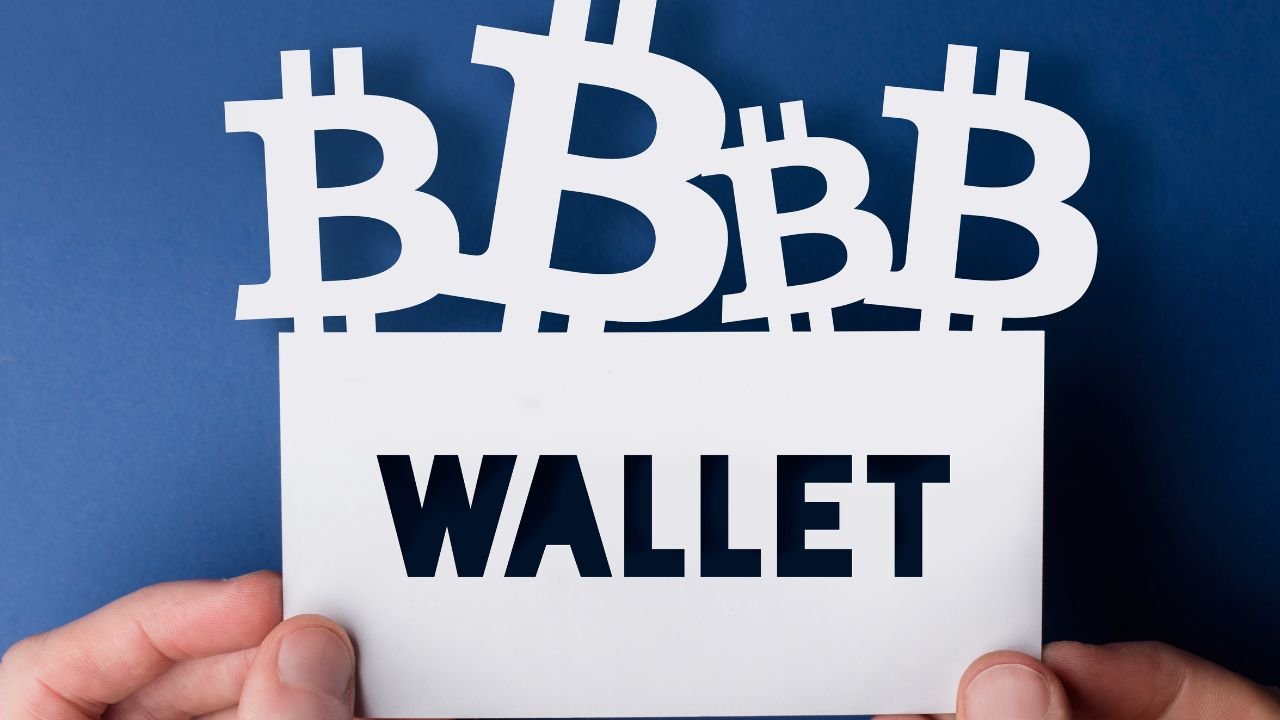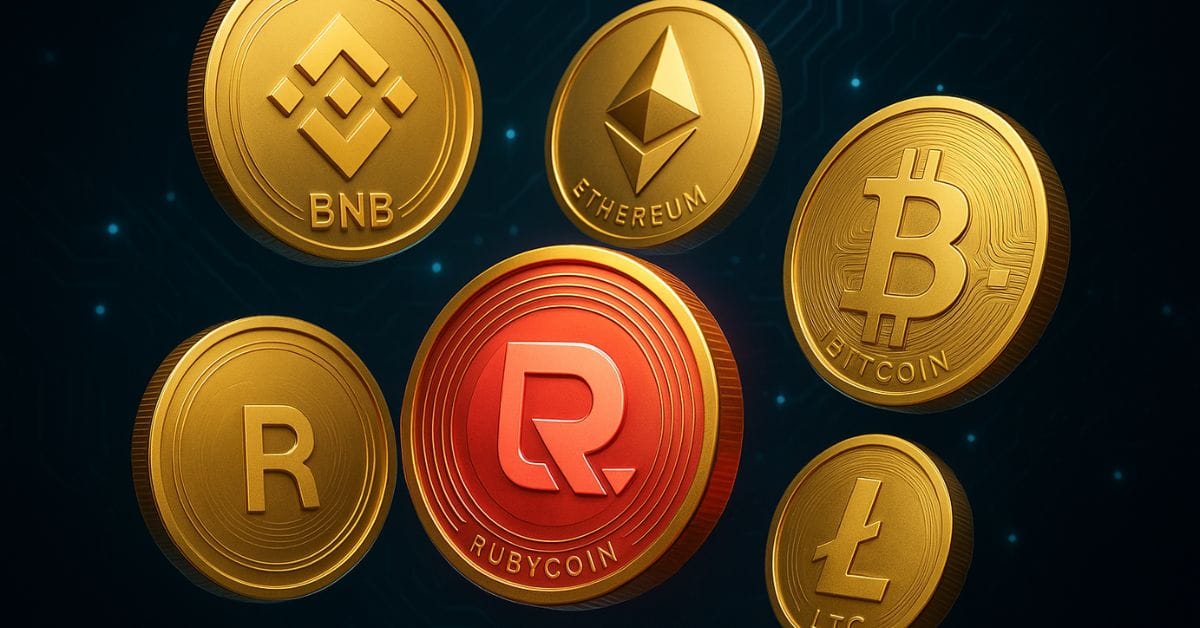Crypto wallets are like secure places to keep your cryptocurrency, but they operate differently than putting cash in a wallet.
There are many crypto wallets to pick from. The first thing to do is find one that suits your needs. Wallets vary in the types of coins they support. Some only work with Bitcoin, others with Ethereum, and others can handle any crypto. There are two main types of wallets: hot wallets, which are online, and cold wallets, which are offline.
Ruby Coin Advisor checked out different crypto wallets and selected the top ones to make it easier to find the right one. We divided our list into the best hot and cold wallets to help you narrow your choices.
- Read Also: How to Open Ctskola Account
- Read Also: Can Cryptocurrency Make You Rich
- Read Also: Which Cryptocurrency Will Boom
5 Best Hot Wallets of May 2025
Hot wallets are online and connected to the internet. They can be a standalone software wallet or a feature in a crypto exchange called an “Exchange Wallet.”
Using hot wallets for crypto transactions is convenient, but they’re online and more at risk of being hacked. That’s why some people prefer cold storage for keeping their crypto safe in the long run.
- Coinbase Wallet
- Crypto.com DeFi Wallet
- SafePal Crypto Wallet
- Exodus Crypto Wallet
- Coinbase Web3 Wallet
3 Best Cold Wallets of May 2025
Cold wallets are devices that keep your cryptocurrency offline, making it more secure. They are usually hardware devices and may resemble USB sticks.
No matter what type they are, a cold wallet securely keeps your crypto keys, lowering the chances of hacking. However, cold wallets don’t have as many extra features for trading and integration as hot wallets.
- Ledger Crypto Wallet
- Trezor
- Ellipal Titan Crypto Wallet
Best Bitcoin Wallet of May 2025
Bitcoin is the most valuable cryptocurrency. Just like other cryptocurrencies, you need a crypto wallet to store Bitcoin. The popular wallets, whether they’re hot or cold, can hold BTC.
Some wallets are designed for specific cryptocurrencies and may not work with Bitcoin. For instance, MetaMask is made for Ethereum-based tokens and doesn’t directly support Bitcoin. Some other wallets, like Coinbase Wallet, may also have limitations. Coinbase Wallet only supports Bitcoin through its mobile app, for example.
On the other hand, certain crypto wallets focus only on Bitcoin. Electrum, for example, works exclusively with Bitcoin. If you only plan to use Bitcoin, Electrum might be a good option. It has never been hacked, and it also works well with Ledger and Trezor.
Methodology
Ruby Coin Advisor carefully studied the features and choices provided by the top cryptocurrency wallets. Using the collected information, each wallet was given scores and evaluated using seven important factors.
- Stablecoins. We looked at popular stablecoins like Tether, USDC, Dai, TrueUSD, and Paxos Standard.
- Top cryptocurrencies. We focused on the 20 most popular cryptocurrencies based on market value.
- Usability. We evaluated how easy it is to use different types of wallets, considering features like exchange integration, staking accessibility, and the ability to convert coins.
- Customer service. We examined the types of customer support available, including phone, email, live chat, and 24/7 support.
- Costs and fees. We assessed fee structures for both exchange/hot wallets and cold wallets, looking at costs for moving coins, conversion fees, transactional costs, and initial costs for hardware storage.
- Security. Security was a significant factor in rating exchange/hot wallets and cold wallets. We considered features like the wallet’s ability to recover stolen assets, security measures (like two-factor authentication), and any history of security breaches.
- Additional features. We also looked at other features, such as educational resources, live charts, and support for non-fungible tokens.
To decide the overall rank for each crypto wallet, we added up the scores based on key factors, using weights, in different rankings.

What Is a Crypto Wallet?
A crypto wallet, or digital wallet, is a computer program that keeps your secret and public codes for dealing with digital money. It lets you send, get, and keep digital assets like Bitcoin, Ethereum, and other cryptocurrencies.
There are two main types of crypto wallets: hot wallets and cold wallets. Hot wallets are online and can be more easily hacked, while cold wallets are offline and provide better security.
There are different kinds of crypto wallets desktop, mobile, web, hardware, and paper wallets. Each type has its pros and cons. People should pick the one that suits them best, considering things like security, how easy it is to use, and how accessible it is.
If your wallets work well together, it can be useful for accessing extra features. However, be careful if you have several wallets for the same cryptocurrency or token, as it may increase the risk of security issues since there are more chances for your crypto keys to be exposed.
How Does Crypto Wallet?
Crypto wallets store the secret keys for your digital money. These keys prove you own the money. You can also use the wallet to send or receive digital money from others.
Crypto wallets come in various types, like online services, programs, or even just writing down the keys on paper. The main job of a crypto wallet is to keep the keys required to use the blockchain and manage your cryptocurrencies.
How Many Types of Crypto Wallet?
There are two main kinds of crypto wallets: hot and cold. Hot wallets are online, connected to the internet. Examples of hot wallets include:
- Online Wallet: These wallets link to websites or online services. For instance, crypto exchanges often provide digital wallets on their websites.
- Phone Wallets: You can download these wallets to your mobile device and save your keys in the app.
- Computer wallets: With a desktop wallet, you download a program to your computer to store your keys.
Cold wallets are wallets that aren’t linked to the internet. For instance, you can get a USB key to store your keys, or you can print your private keys on paper.
Also, there are two types of crypto wallets: custodial and noncustodial. A custodial wallet is controlled and managed by a third party, like a crypto exchange’s online wallet, which takes care of security for you.
A noncustodial wallet is a type of cryptocurrency wallet that you control. It could be a USB hard drive or a paper wallet. With a non-custodial wallet, you have to take care of storing and safeguarding your keys.
What is Hot Wallet?
A hot wallet is an online wallet for keeping and using cryptocurrencies or digital assets that you trade or use often.
This wallet is made to be easy and convenient. It lets you send and get money quickly without going through a long process of moving funds from a secure storage wallet.
Hot wallets, being online, are easier targets for hacking and security threats than cold wallets, which are offline and safer. So, it’s crucial to protect a hot wallet by using strong passwords, enabling two-factor authentication, and avoiding storing large amounts of cryptocurrency in it for long periods.
What is Cold Wallet?
A cold wallet is a special kind of crypto wallet for keeping cryptocurrencies offline. This helps make it more secure by lowering the chances of hacking, malware, and other online security risks.
Cold wallets are devices, like USB sticks or paper wallets, that keep your crypto keys offline for extra security. This means your private keys are safe from online threats.
Cold wallets are very secure but not as easy to use for everyday transactions as hot wallets. They’re best for keeping a lot of cryptocurrency for a long time.
When you’re using a cold wallet for your cryptocurrency, make sure to be careful and take the necessary steps to avoid losing your private keys. This will help you recover your digital money if your hardware device is lost or damaged.
- Read Also: Which Cryptocurrency to Avoid Trading
- Read Also: How many types of Cryptocurrency
Why Do You Need a Crypto Wallet?
Cryptocurrency is just a code on a big digital record. When you buy cryptocurrencies like Bitcoin, Ruby Coin, or Ethereum, your ownership proof is linked to a public key and a private key.
Think of the public key as your crypto address, similar to a bank account number. It shows where your crypto is located, but it doesn’t let anyone access it. On the other hand, the private key is like your ID that proves you’re the real owner.
If you forget your secret code, you might not be able to use your digital money. Also, if someone else gets your secret code, they can use your digital money.
If you don’t own the keys to your cryptocurrency, you can’t fully control or access your coins.












